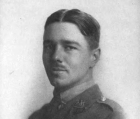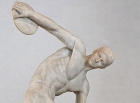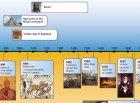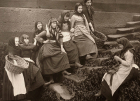Chronology
Chronological understanding involves sequencing, events, stories, pictures and periods over time to show how different times relate to each other and contribute to a coherent understanding of the past. You don’t necessarily have to teach topics in chronological order but you do need to relate the topics you teach to their chronological context. In this section you will find a range of articles and resources to support the development of chronological understanding, including schemes of work for teaching themes across time.
Sort by:
Date (Newest first) | Title A-Z
Show:
All |
Articles |
Podcasts |
Multipage Articles
-

Elizabethan times: Just banquets and fun?
ArticleClick to view -

Planning a post-1066 thematic study
ArticleClick to view -

Primary History 69 - Editorial
ArticleClick to view -

Primary History and planning for teaching the Olympics - four curricular models
ArticleClick to view -

Pull-out Posters: Primary History 67
ArticleClick to view -

Resources for courses: ideas for your history curriculum
ArticleClick to view -

Scheme of Work: Chronological Unit - Books Through Time
ArticleClick to view -

Scheme of Work: Chronological Unit - Numbers Through Time
ArticleClick to view -

Teaching Robin Hood at Key Stage 1
ArticleClick to view -

The history of medicine – warts and all – for Key Stage 2
ArticleClick to view -

‘Come all ye fisher lassies’
ArticleClick to view

